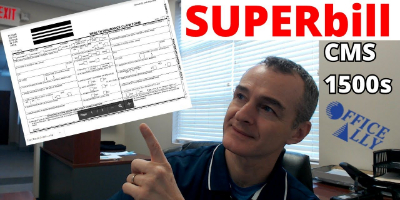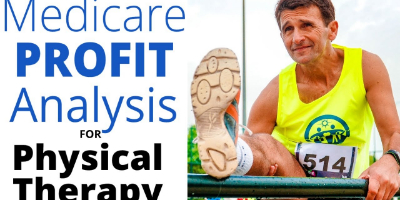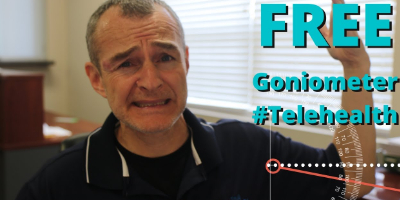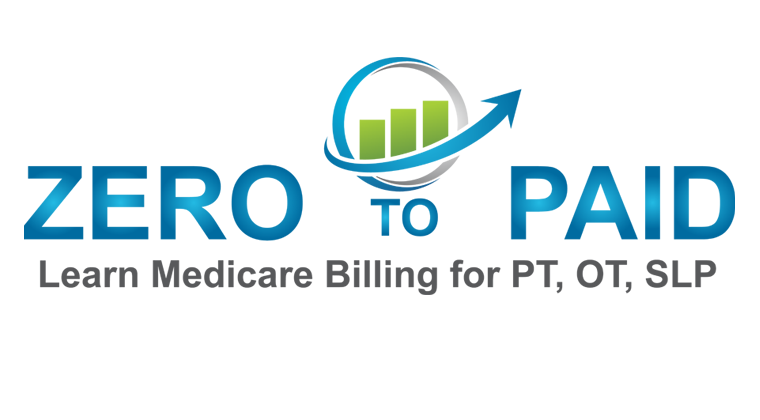How much does Medicare Part B pay for physical therapy?
Average reimbursement for physical therapy visit s under Medicare part B will pay between $97 and $105 for a 60-minute, 4-unit physical therapy treatment.
The initial evaluation visit typically reimburses at a higher rate of $130 to $160 on average due to the higher relative value of the initial evaluation code.
How much does a physical therapy evaluation cost?
Medicare Part B reimbursement rates vary based on location, but in general, reimbursement rates for a physical therapy initial evaluation (CPT Code 97161, 97162, 97163) range between $90 and $110.
What determines Medicare Part B Reimbursement rates for Physical Therapy?
1.) Location –
Different states have different reimbursement rates. Watch the video at the bottom of this article to learn how you can check reimbursement rates specific to your state.
2.) Services Delivered –
Different CPT Procedure codes will reimburse at different rates. Therapeutic activity 97530 reimburses at nearly 20% higher rates than Therapeutic exercise 97110.
3.) Length of treatment –
Many of the main physical therapy codes are time based codes. The longer you treat a Medicare beneficiary the greater number of units billed and as a result the higher reimbursement per visit.
Does Outpatient Physical Therapy Pay Differently When Delivered In the Home?
No, there is no different between Medicare Part B reimbursement rates for physical therapy service delivered in the patient’s home or in a private practice clinic.
How do I Become a Contracted Medicare provider?
If you would like to learn more about contracting with Medicare as a physical therapist in private practice read this post: Click here
If you want to learn how to look up the Medicare CMS Physician Fee Schedule for 2020 and specifically for physical therapy, occupational therapy, or speech language pathology, WATCH THIS VIDEO.
In 2020 CMS Physician Fee Schedule Lookup Tool Shows:
- 97161 – $84.17
- 97110 – $30.21
- 97124 – $28.53
- 97140 – $27.83
- 97530 – $38.43
Video Time Stamps

Anthony Maritato, PT
Private Practice Owner / Physical Therapist
After starting a private practice physical therapy clinic in 2022 with his wife Kathy Maritato, PT, Tony and Kathy grew their practice to five locations across two states.
Now, Tony and Kathy enjoy spending time treating patients in the morning, coaching therapists in the evening, and being home to play with their dog Tucker and 4 boys.
More Lessons...
Marketing Occupational Therapy Direct To Consumer
If you really want to find easy success in marketing, solve important problems. ... As a therapist I was always so frustrated by patients who would refuse to schedule unless they had 10AM on MWF, or patients who would call to cancel a scheduled appointment because...

New Grad Physical Therapist
NEW GRADUATES!!! .. A great way to advance your career is to become a contracted Medicare provider ASAYC! (As Soon As You Can) ... Facts you may not know: ... 6 Tips to Improve Your Success as a New Graduate Physical Therapist in 2021 ... 1.) It is FREE to contract as...

Medicare Enrollment for PT OT SLP
This post teaches physical therapists, occupational therapists, and speech language pathologists how to become Medicare providers.

5 Best Books For Starting A New Physical Therapy Practice in 2021
Here are my Top 10 Recommended Business Books For Starting A Physical Therapy Practice in 2021

How To Build A Physical Therapy Clinic Website
Create A Physical Therapy Website | Full Tutorial | Watch Videos HERE
How To Credential A Physical Therapist With Medicare Part B
If you would like to learn how to enroll in Medicare as a physical therapist, occupational therapist, or speech language pathologist Part B provider then this is the post for you.

How to create a superbill for cash based therapy, out of network claims Office Ally Practice Mate
The CMS 1500 form is the gold standard for superbills. If you are giving cash based clients a superbill or helping clients submit out of network claims this tutorial will walk you through the entire process from start to finish for using a FREE Practice Mate account to create and print a CMS 1500.

Medicare Physical Therapy Claim and Reimbursement Analysis – How to create a profitable practice
Medicare reimbursement for physical therapy has been on the decline for several years now and with the proposed reductions coming in the next year physical therapy clinic owners are looking for new business models. The way it has always been done isn’t going to bring you success in your physical therapy practice moving forward.

Telehealth – Using ScreenCapture, Canva, and A Digital Goniometer To Measure ROM (FREE)
Telehealth for physical and occupational therapy has been growing in popularity lately. Along with this growth, therapists are looking for new and easy to use tools. This simple goniometer can be added to your screen capture to measure joint range of motion.

Medicare Guidelines for Billing Therapeutic Exercise 97110 PT, OT in 2020
“Many therapeutic exercises may require the unique skills of a therapist to evaluate the patient’s abilities, design the program, and instruct the patient or caregiver in safe completion of the special technique. However, after the teaching has been successfully completed, repetition of the exercise, and monitoring for the completion of the task, in the absence of additional skilled care, is non-covered. For example, as part of the initial therapy program following total knee arthroplasty (TKA), a patient may start a session on the exercise bike to begin gentle range of motion activity. Initially the patient requires skilled progression in the program from pedal-rocks, building to full revolutions, perhaps assessing and varying the
seat height and resistance along the way. Once the patient is able to safely exercise on the bike, no longer requiring frequent assessment and progression, even if set up is required, the bike now becomes an “independent” program and is no longer covered by Medicare.”
